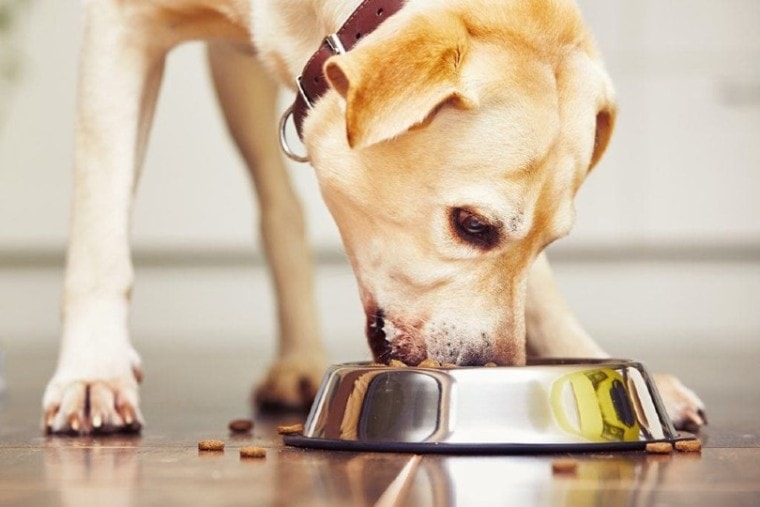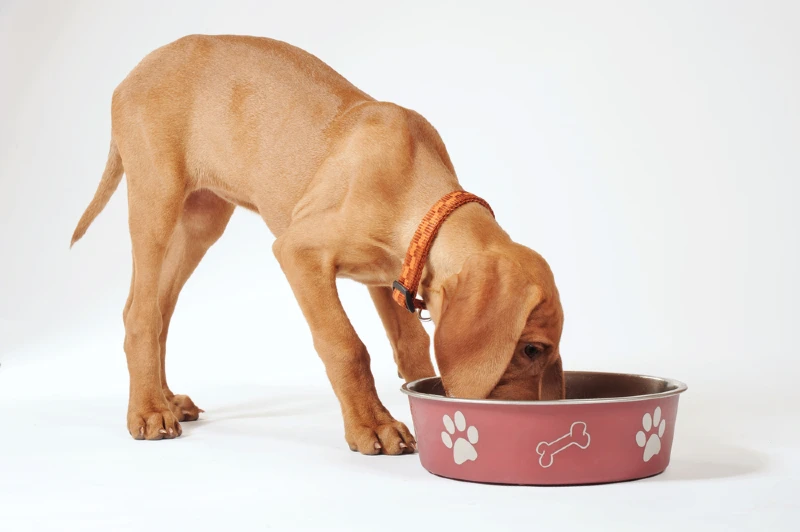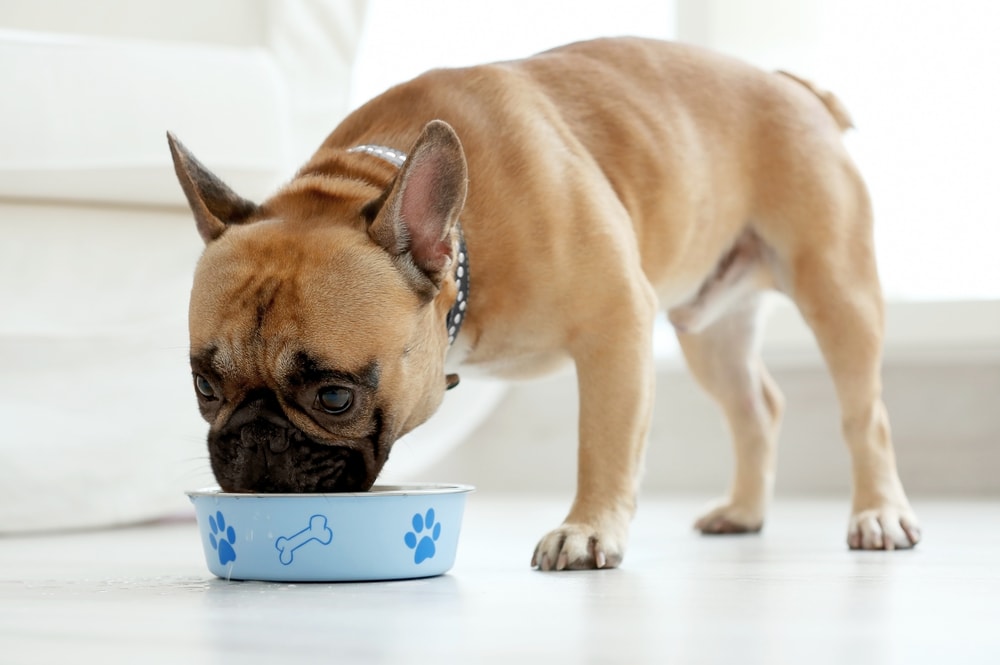
If you feed formulated kibble to your dog, you may not think about their macronutrient needs very often. It probably comes as no surprise that, just like humans, dogs require a balance of macronutrients—including carbohydrates, fat, and protein—to stay healthy. Have you ever wondered how these components benefit your dog’s body? If so, you’ve come to the right place.
In this article, we will discuss the importance of getting enough protein for your pup, as well as how much protein your dog actually needs and strategies for selecting high-quality dog food.
Why Do Dogs Need Protein?
Simply put, your dog’s body would not function without protein. Protein performs several key bodily functions, such as building muscles and organ structures and creating enzymes, hormones, and antibodies to help maintain a strong immune system and a functioning body.
Protein is made up of little building blocks called amino acids. Your dog needs 22 total amino acids, and while your dog’s body is capable of producing 12 of those amino acids, the remaining 10 need to come from their diet. 1 When a dog is not getting enough protein, their coat might be dry, brittle, or even patchy. You may find that they lose weight very easily or that wounds take a long time to heal.

How Much Protein Do Dogs Need?
The question of how much protein your dog needs depends on how much they weigh and how active they are. Generally speaking, your dog needs about 1 gram of protein per pound of body weight. Note that if your dog is overweight, you should base this calculation on your dog’s ideal body weight.
If your dog is a working dog or if they simply get a large amount of exercise, they will need more protein in their diet than a dog that gets light to moderate exercise. The same is true for pregnant or lactating dogs and in some cases, ill or sick dogs. Puppies also need more protein than adult dogs; about 29% (by weight) of their diet should be protein.
If you are unsure how much protein your dog needs based on their age, exercise level, and other factors, make sure to ask your veterinarian for advice. Not every protein is the same, and plant-based proteins do not provide dogs with the precursor amino acids, a.k.a. building blocks, that they need to synthesize taurine.
A great dog food that is complete, balanced, and based on quality ingredients can make all the difference.
When it comes to keeping any dog or puppy fit and healthy, diet and high-quality protein sources are key. Spot & Tango uses excellent ingredients to provide your fur baby with the best possible nutrition.
Are you ready to save 50% on Spot & Tango HUMAN-GRADE premium dog food? Click here to get started!
Can Dogs Have Too Much Protein?
One common myth about dogs and protein is that giving your dog too much protein can cause kidney failure. This myth comes from the fact that high-protein diets can be harmful to dogs that already have kidney disease. However, studies have shown that high-protein diets do not adversely affect your dog’s kidneys.
To determine the correct amount of protein for a specific dog, you will need to consider their individual factors: age, size, activity level, health, life stage, etc. But generally speaking, diets labeled as high protein are just over 30% protein, which is not too much protein for a facultative carnivore’s body. In a healthy dog, high protein is not going to cause a health issue, since any excess protein will be used for energy, and the by-products will be excreted via urine or feces.
Rather than focusing on high protein levels, you should consider the quality of the proteins and the composition of essential amino acids and their digestibility and bioavailability. If a protein is poorly digestible, the excess is excreted into feces or fermented, resulting in smelly gas and feces. If a protein is highly digestible, it will be easily absorbed and made bioavailable. Your dog’s body will use it to form structural proteins like muscle tissue, synthesize enzymes and hormones, and finally, transform it into energy for utilization and storage.
This is why feeding your dog too much of a high-protein diet may become an issue, with the possibility of weight gain. As with any other nutrient, excessive consumption of protein beyond the requirements for maintenance will be stored. Extra protein will also result in additional monetary and ecological costs for food. Therefore, knowing the right amount of protein that your dog needs is the right and ethical thing to do.

How Can I Choose High-Quality Dog Food?
When choosing the best food for your dog, make sure to read the label. While your dog needs protein, they will also benefit from other types of foods, including vegetables, fruits, and grains. The highest-quality dog foods will include a few of these elements in addition to meat. Make sure that you recognize most of the ingredients in the food you choose and that it doesn’t contain too many carbohydrates. Aim for a dog food whose first two or three ingredients are meat-based.
Conclusion
Protein is an essential nutrient for your dog. The exact amount of protein that your dog needs depends on their size, age, and activity level. Unless your dog has kidney problems, you shouldn’t be too concerned about feeding them too much protein as long as you choose high-quality, balanced dog food. Still, it’s best to find the right amount of protein to prevent unnecessary waste or weight gain. When in doubt, talk to your vet about finding the right food for your dog.
Featured Image by: Jaromir Chalabala, Shutterstock








